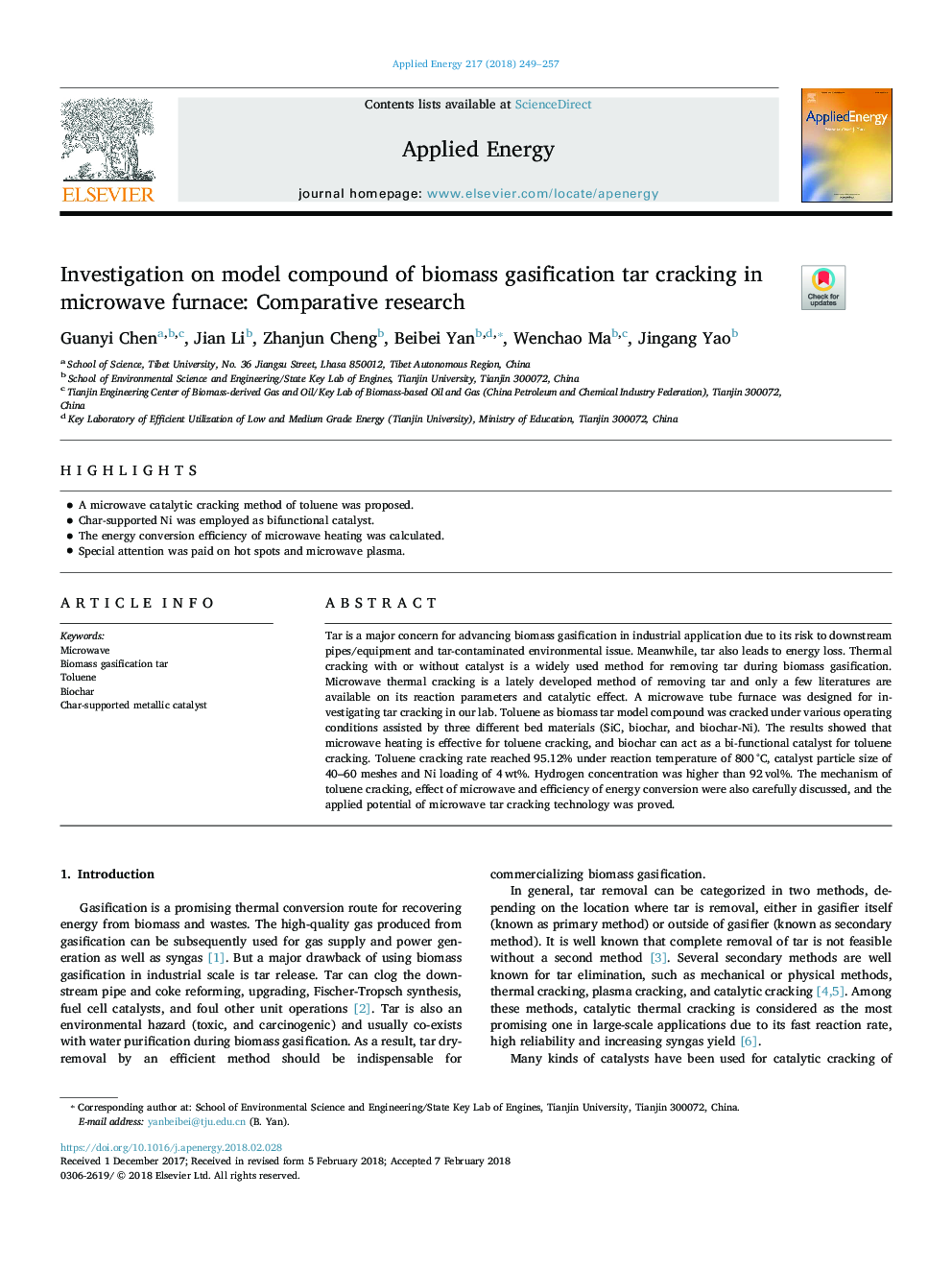| Article ID | Journal | Published Year | Pages | File Type |
|---|---|---|---|---|
| 6680452 | Applied Energy | 2018 | 9 Pages |
Abstract
Tar is a major concern for advancing biomass gasification in industrial application due to its risk to downstream pipes/equipment and tar-contaminated environmental issue. Meanwhile, tar also leads to energy loss. Thermal cracking with or without catalyst is a widely used method for removing tar during biomass gasification. Microwave thermal cracking is a lately developed method of removing tar and only a few literatures are available on its reaction parameters and catalytic effect. A microwave tube furnace was designed for investigating tar cracking in our lab. Toluene as biomass tar model compound was cracked under various operating conditions assisted by three different bed materials (SiC, biochar, and biochar-Ni). The results showed that microwave heating is effective for toluene cracking, and biochar can act as a bi-functional catalyst for toluene cracking. Toluene cracking rate reached 95.12% under reaction temperature of 800â¯Â°C, catalyst particle size of 40-60 meshes and Ni loading of 4â¯wt%. Hydrogen concentration was higher than 92â¯vol%. The mechanism of toluene cracking, effect of microwave and efficiency of energy conversion were also carefully discussed, and the applied potential of microwave tar cracking technology was proved.
Related Topics
Physical Sciences and Engineering
Energy
Energy Engineering and Power Technology
Authors
Guanyi Chen, Jian Li, Zhanjun Cheng, Beibei Yan, Wenchao Ma, Jingang Yao,
